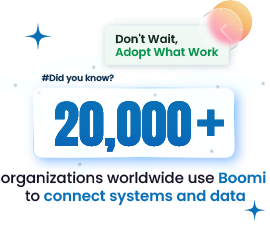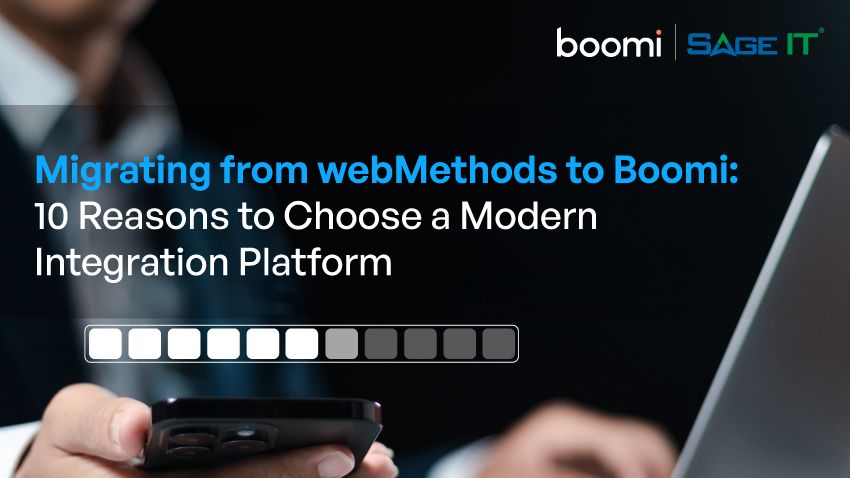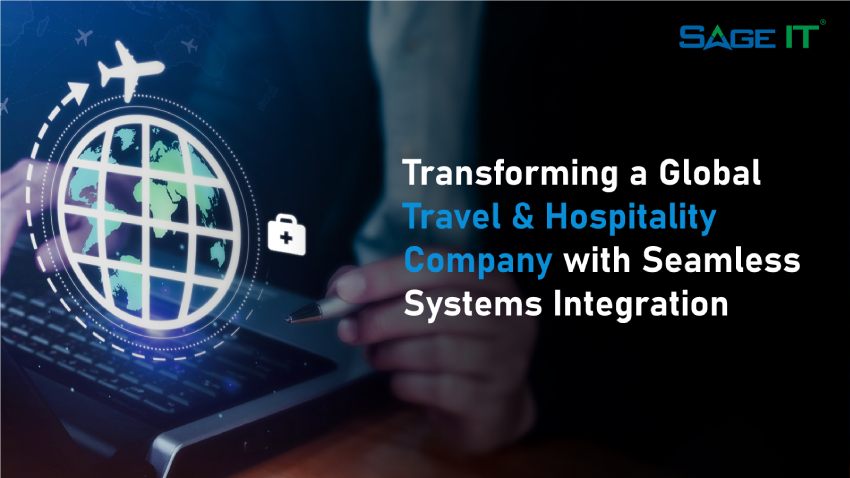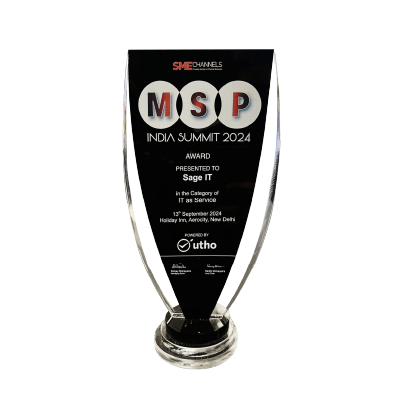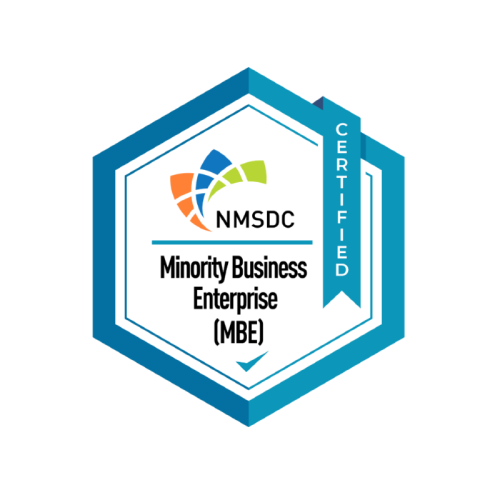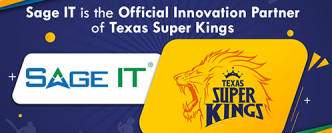Choosing the right integration platform can be a game-changer for your business. With so many options available, understanding which solution aligns best with your goals is essential.
Boomi is a trusted choice for large enterprises, offering scalability and the ability to manage complex integration needs as businesses grow. On the other hand, Celigo stands out for its intuitive interface and pre-built templates, making it an excellent fit for businesses prioritizing quick deployment and simplified integration.
To help you make an informed decision, we’ve crafted this detailed comparison to evaluate how Boomi and Celigo perform across key features. Let’s dive into the details and find the right solution for your business needs.
Which is Better – Boomi or Celigo?
Compare the following factors to determine which option works best for you.
Connectors
Which is Better? Boomi’s vast range of connectors and support for diverse endpoints fit enterprises managing large-scale integrations, while Celigo’s universal adapter works well for mid-sized businesses needing straightforward solutions.
Transformation
Which is Better: Boomi’s no-code approach benefits enterprises looking for efficient transformations, while Celigo’s dual approach meets businesses needing adaptable workflows.
Embedded Integration
Which is Better: Boomi’s advanced embedded integration capabilities are ideal for software providers, while Celigo’s approach supports simpler setups.
Security & Compliance
Which is Better: Boomi’s extensive certifications offer confidence for enterprises handling sensitive data, whereas Celigo’s security features suit less regulated environments.
Support
Which is Better: Boomi’s structured support options and broad resources favor enterprises needing comprehensive guidance, while Celigo’s tailored plans suit mid-sized businesses, emphasizing strategic support.
Pricing
Which is Better: Boomi’s flexible pricing accommodates scaling enterprises, while Celigo’s transparent structure appeals to mid-sized businesses seeking cost-effective solutions.
Which is Best – Boomi or Celigo?
The best platform depends on your requirements
Boomi vs Celigo – Feature Comparison
| Feature | Boomi | Celigo | Recommendation |
|---|---|---|---|
| API Management | Provides a complete API lifecycle management solution, including API Proxy, API Analytics, and monitoring for robust and secure API orchestration. | Limited API management capabilities, primarily focused on pre-built flows for common integrations. | Boomi is ideal for enterprises requiring detailed API lifecycle management, while Celigo works well for businesses focused on straightforward API workflows. |
| Data Integration | Advanced Master Data Hub organizes data across multiple systems. Visual mapping tools simplify transformations, while pre-built connectors support efficient integration. | Focuses on real-time synchronization using pre-configured templates. Lacks a dedicated Master Data Hub for centralized governance. | Boomi excels in managing complex data ecosystems, whereas Celigo is designed for real-time synchronization in mid-sized businesses. |
| B2B/EDI Integration | Supports X12 and EDIFACT standards for EDI, enabling robust B2B communication. Tools for trading partner setup and EDI mapping streamline document exchange for high transaction volumes. | Simplified EDI functionalities with pre-configured templates for common documents like invoices and purchase orders. | Boomi is well-suited for enterprise-grade B2B workflows, while Celigo offers accessible EDI solutions for smaller-scale operations. |
| Application Integration | Offers low-code AtomSphere platform with pre-built connectors for popular apps like Salesforce, SAP, and NetSuite. Supports enterprise scalability. | Provides user-friendly integration with pre-built flows for commonly used apps. Limited customization for more advanced use cases. | Boomi supports large-scale enterprise integrations, while Celigo’s user-friendly tools are effective for simpler applications. |
| System Integration | Supports hybrid cloud-to-cloud and cloud-to-ground integrations with Atom runtime for optimized performance near data sources. | Focuses on SaaS-to-SaaS integration with less robust support for hybrid or on-premises systems. | Boomi works well for hybrid and distributed architectures, while Celigo fits businesses primarily using SaaS solutions. |
| Security & Compliance | Certified for SOC 1, SOC 2, FedRAMP, ISO 27001, HIPAA, and PCI. Offers robust data protection for regulated industries | Limited to SOC 2 and HIPAA certifications. Lacks support for certifications like FedRAMP and PCI | Boomi provides comprehensive compliance for highly regulated industries, whereas Celigo effectively addresses basic security needs. |
| Event Integration | Includes Boomi Event Streams for real-time, event-driven integration with guaranteed delivery and ordering. | Does not offer native event integration or event stream analytics. | Boomi suits organizations needing real-time, event-driven integration. Celigo may suffice for companies without event-driven requirements. |
| Low-Code Development | Built for IT professionals, enabling intricate workflows and applications with minimal coding expertise | Combines low-code and no-code features, making it accessible for non-technical users. | Boomi supports IT teams managing complex workflows, while Celigo empowers broader team collaboration with its no-code approach. |
| Private Cloud Support | Fully supports private cloud and on-premises runtimes for data sovereignty and regulatory compliance. | Does not support private cloud or on-premises deployments. | Boomi serves organizations with private cloud or on-premises requirements, while Celigo caters more to cloud-first businesses. |
| Master Data Management (MDM) | Boomi MDM: Built-in MDM capabilities manage and standardize data across platforms for accuracy and synchronization. | No native MDM functionality; limited to basic data synchronization. | Boomi is essential for centralized data governance, while Celigo is best for businesses needing straightforward synchronization capabilities. |
User Review about Boomi and Celigo
Boomi (4.4/5 – G2, 3.9/5 – Gartner) – What Users Are Saying
Boomi Pros
Extensive Connector Support
Boomi simplifies system integration with its broad selection of pre-built connectors for platforms like Salesforce, AWS, and Oracle.
As mentioned in the review: “Boomi integrates systems effectively using its diverse library of inbuilt connectors.”
User-Friendly Design
Its low-code platform empowers users with minimal technical expertise to build and manage integrations.
As mentioned in the review: “Boomi’s intuitive interface allows even non-technical users to deploy integrations quickly.”
Responsive Customer Support
Boomi’s team offers reliable assistance and practical solutions.
As mentioned in the review: “Their support team addresses issues quickly and provides smooth integration processes.”
Boomi Cons
Complexity with Advanced Logic
Boomi faces limitations when handling intricate requirements and lacks efficient parallel execution.
As mentioned in the review: “Complex logic isn’t Boomi’s strong suit, and executing integrations in parallel can be tricky.”
Slower Navigation Transitions
Switching between menus on the platform sometimes feels delayed.
Mentioned in the review: “Menu transitions could be faster to improve the user experience.”
Celigo (4.6/5 – G2, 4.5/5 – Gartner) – What Users Are Saying
Celigo Pros
Real-Time Monitoring
Celigo provides accurate and consistent integration tracking.
As mentioned in the review: “We rely on Integrator.io daily for real-time updates and integration checks.”
Simple Workflow Management
Its interface lets users handle integration tasks without unnecessary difficulties.
As mentioned in the review: “Celigo’s user-friendly layout helps even non-technical users manage workflows easily.”
Thorough API Testing
Celigo supports detailed testing to validate stable integrations.
As mentioned in the review: “API testing in Celigo maintains system reliability and minimizes errors.”
Celigo Cons
High Pricing for Smaller Teams
Costs can be restrictive for startups or small businesses aiming to scale.
As mentioned in the review: “Celigo’s pricing, while justifiable, might be challenging for small businesses.”
Challenging Debugging Processes
Identifying and fixing complex errors can be cumbersome.
As mentioned in the review: “Error resolution can be tricky for complicated workflows and integrations.”
Conclusion – Which one do you choose?
Boomi:
If you’re considering Boomi but are concerned about the technical complexities, our certified experts are here to assist. As trusted providers of Boomi integration services, we simplify your integration journey—whether it’s managing migrations, automating workflows, or connecting hybrid environments.
Celigo:
Both platforms have their strengths, but Boomi’s comprehensive features and scalability make it a long-term investment for businesses with growing integration needs. If you’d like support in leveraging Boomi, our Boomi Consulting service facilitates smooth setup and optimization aligned with your objectives.

